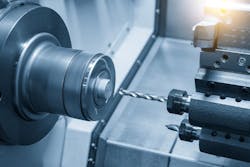Core technologies for motion control
For controls engineers building machinery, foundational motion-control technologies—like motors, drives and motion controllers—are the backbone of manufacturing automation.
Automation World recently spoke with AutomationDirect product engineer Joe Scoccimaro, Beckhoff drive-technology product manager Matt Prellwitz and Kollmorgen application engineer James Coleman on the state of motion control technology today.
Key components such as stepper or servo motors, along with motion controllers integrated into drives or PLCs, are essential for executing precise physical movements. The system's effectiveness hinges on real-time feedback from sensors and encoders, which allows for continuous adjustments. The integration of these motion control systems with other automation technologies via digital communication protocols (e.g., EtherCAT, Modbus TCP) further enhances their functionality, enabling seamless operation across the entire manufacturing setup.
Additionally, the industry experts highlighted several challenges and considerations relevant to implementing motion control systems. Engineers must ensure proper integration and tuning of various components, which can be streamlined by using systems from a single manufacturer or standardized protocols for compatibility. Safety is paramount, with recommendations for features like safe torque-off modes and certifications by entities like TUV or UL.
Learn more of what Scoccimaro, Prellwitz and Coleman have to say about motion control technology in the full interview from Automation World.

